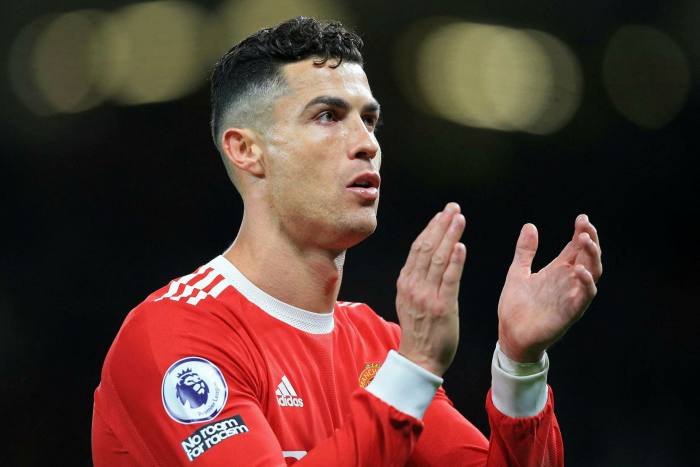This week’s Scoreboard is coming to you from London, where tennis fever is creeping in ahead of Wimbledon. I popped over to the Hurlingham Club — a swish 42-acre members club that somehow persists in the middle of super-prime London real estate — for the brief final chapter of the lengthy Wimbledon preamble. I got to watch No.3 seed Casper Ruud and Carlos Alcaraz — the sport’s rising star — as they re-familiarised themselves with playing on grass. They both lost to lower ranked opponents.
Geopolitics had threatened to overshadow Wimbledon’s return to full capacity, with the move to ban Russian players a topic of much debate. But as we explain, the marketing juggernaut has thundered on. We also have our full preview of the tournament.
Elsewhere money continues to pour into European football, with North American investors agreeing a deal to take control of Olympique Lyonnais. French football is meant to be cheap compared to England and Italy, but with the deal valuing the club at €800mn — what’s the business plan?
Finally, I’d like to take this opportunity to introduce myself. I’ve recently taken over from Murad as the FT’s sports editor, so you’ll be hearing plenty more from me in due course. But for now all I’ll say is: do read on — Josh Noble, sports editor
Russian row serves to highlight Wimbledon’s global pull
Wimbledon kicks off on Monday — without the men’s top player, or the women’s reigning champion. One is ineligible after a ban on Russian players, the other retired after losing her love for the game.
The championships will also offer players zero ranking points, after the exclusion of Russians fell foul of the sport’s two governing bodies.
Yet excitement for the tournament appears undimmed. Indeed, the row over Russia has given Wimbledon the chance to remind the rest of tennis that it still rules the roost.
A quick look on social media shows there are a lot more people who follow Wimbledon than follow the rest of tennis. The tournament has 3.3mn followers on Instagram, vs 2.4mn for the ATP and 1mn for the WTA. Similarly, it has at least 1mn more people keeping tabs on it than any of the other Grand Slams.
Tennis remains a sport more driven by star power than playing prowess. Wimbledon’s organisers will be cheering the return of Serena Williams (14.9mn followers) even though few expect her to mount much of a challenge to the utterly dominant young star of women’s tennis: Iga Świątek (889k followers).
Similarly, the lack of men’s No. 1 Daniil Medvedev (980k followers) is countered by the arrival of Novak Djokovic (10.8mn) and Rafael Nadal (15.3mn) — as well as the game’s emerging talent, 19-year old Carlos Alcaraz (1.5mn).
Simon Chadwick, professor of global sport at Emlyon Business School, says the Russian row is a reminder of Wimbledon’s worldwide pull which is looked on enviously by others in tennis. The all-white dress code, the grass courts, the Royal box — it all amounts to a masterclass in branding that has enabled the Championships to stay ahead of the game.
“The public face is fair play, rules-based, very genteel in an old-fashioned, English sort of way. Yet at the same time, it’s actually quite ruthless and competitive and technologically advanced,” Chadwick said.
Or as Chrissie Evert, one of the most successful players in the history of women’s tennis, put it: “I always thought that Wimbledon was the only Grand Slam that was bigger than the players. I just think the players are bigger than the other Grand Slams. I think Wimbledon is bigger than the players.”
The prize money is sure to help too. The men’s and women’s single champions will each take home £2mn this year, up from £1.7mn in 2021.

John Textor, the man fronting the €800mn takeover of French football club Olympique Lyonnais, is betting he can solve football’s money problem.
“Unfortunately, football is very much about money,” Textor told journalists this week.
That much is clear following the £2.5bn acquisition of London-based Chelsea by US financiers Todd Boehly and Clearlake Capital, and former Goldman Sachs dealmaker Gerry Cardinale’s €1.2bn takeover of Italian champions AC Milan.
Still, Textor and his partners, Jamie Salter, whose Authentic Brands group owns sportswear maker Reebok, and Bill Foley, owner of the Vegas Golden Knights hockey team, are betting on more than just capital to compete.
Their Eagle Football Holdings group will have to invest wisely to compete with Paris Saint-Germain, owned by Qatar Sports Investments, a government-backed vehicle.
With a background in technology, Textor thinks football clubs can generate revenues from new sources aside from ticket and merchandise sales, broadcast deals and sponsorships.
But it is his network of clubs — he controls Belgian side RWD Molenbeek, Brazil’s Botafogo, and a 40 per cent share of English Premier League side Crystal Palace — that could be critical to finding an edge.
While he’s visited Palace’s first-team training facilities a handful of times, Textor says he’s been to the youth academy on 50 separate occasions.
“That really tells you what my interests are, I love the youth development side of the sport,” he said. “What I like about Eagle Football and our strategy is that we are attempting to create a family of highly collaborative top-tier clubs that work together in identifying and developing a global footprint of talent.”
Lyon has generated more than €270mn in transfer fees from selling players trained at the club since July 2015, according to CIES Football Observatory. A profitable youth academy explains Lyon’s knack for playing the transfer market, where deep-pocketed rivals overpay for top talent.
Lyon has earned roughly €686mn from selling players since summer 2012 versus an outlay of €439mn in the same period, second place across Europe’s big five leagues.
The solution to the sport’s money problem?
“It is what it is: we have to bring more capital to the equation,” said Textor. “But if we can find 11 players in this world that are better than those you can buy, we can beat you.”
Highlights

-
Cristiano Ronaldo partnered with Binance to create a collection of non-fungible tokens. The crypto platform signed up the Manchester United footballer, one of the world’s most marketable athletes, despite the crash in digital asset values.
-
Jay Monahan, commissioner of the US PGA Tour, warned that LIV Golf, a rival funded by Saudi Arabia’s $620bn sovereign wealth fund, is trying to “buy the game of golf”. LIV is luring PGA Tour members with big pay cheques and prize money. The European Tour subsequently imposed £100,000 fines on members who turned out for LIV.
-
The governing body for international swimming, Fina, and Rugby League both instituted effective bans on most transwomen athletes this week, heightening a fraught debate among sport policymakers and transgender advocates about eligibility in elite sport.
-
Michael Rubin, billionaire founder of sports merchandiser Fanatics, is selling his 10 per cent stake in Harris Blitzer Sports Entertainment, owner of the Philadelphia 76ers basketball team. The move is designed to avoid conflicts of interest as Fanatics expands into sports betting and collectibles.
-
The Indian Premier League’s $6.2bn media rights auction put Indian cricket at the centre of the sporting world, writes Benjamin Parkin, the FT’s South Asia correspondent. How Disney and Viacom18 use their rights will be an important test for India’s entertainment market.
Transfer Market

-
Todd Boehly and Clearlake Capital are making their mark following their £2.5bn takeover of Chelsea Football Club from sanctioned Russian oligarch Roman Abramovich. Boehly is taking over as chair to replace the departing US lawyer Bruce Buck, one of Abramovich’s trusted advisers. The club is also seeking a replacement for director Marina Granovskaia, another key member of the Abramovich era. Boehly will act as interim sporting director until a successor can be found for Granovskaia, who handled player transfers.
Final Whistle
A chegada do BOSS @JohnTextor também levantou a torcida por aqui. FOOOGOOOO! 🔥🔥🔥 pic.twitter.com/ft9NV2rOh9
— Botafogo F.R. (@Botafogo) June 23, 2022
Football fans don’t welcome every American investor with open arms. Just ask the US Glazer family, whose £790mn acquisition of Manchester United and subsequent ownership remains subject to supporter protests. That’s anything but John Textor’s experience in Brazil, where fans of Botafogo chanted and waved banners as their club’s owner collected an honorary title in Rio this week, jetting out following his Lyon press conference. Check out the festivities here.
Scoreboard is written by Samuel Agini and Arash Massoudi in London, Sara Germano, James Fontanella-Khan, and Anna Nicolaou in New York, with contributions from the team that produce the Due Diligence newsletter, the FT’s global network of correspondents and data visualisation team
Recommended newsletters for you
Due Diligence — Top stories from the world of corporate finance. Sign up here
Unhedged — Robert Armstrong dissects the most important market trends and discusses how Wall Street’s best minds respond to them. Sign up here
Credit: Source link















